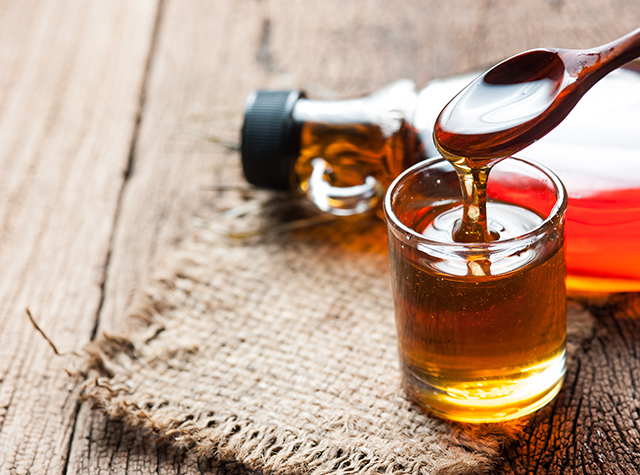Pure, organic maple syrup is a delicious superfood
08/06/2018 / By Michelle Simmons

Researchers shared the many benefits of pure, organic maple syrup in a symposium at the 253rd annual American Chemical Society (ACS) meeting in San Francisco held in early April 2017. The symposium was the very first worldwide symposium focused on the health benefits of pure, organic maple syrup.
The following are some of the beneficial properties of maple syrup discussed at the symposium:
- Antimicrobial – Scientists at McGill University has also revealed that maple syrup can substantially enhance the antimicrobial effect of antibiotics, reducing the use of antibiotics. In their study, antibiotics arbenicillin and ciprofloxacin were administered together with maple syrup, and results showed that up to 90 percent less antibiotic could be used with the same healing effects. These findings support the use of maple syrup in combating against viruses and superbugs.
- Antioxidant – Researchers at the symposium also revealed the discovery of two key compounds found in maple syrup that contain antioxidant properties. This increased the count of beneficial phytonutrients in maple up to 65. In 2011, Quebecol, a polyphenolic molecule, and isoquebecol, an analogue, exhibited significant positive effects against inflammation.
- Functional food – Because of the essential vitamins and minerals that pure maple syrup contains, it is considered as a functional food. Researchers developed a maple sap formulation that can bring both probiotic and prebiotic benefit to the balance of bacteria in the gut.
- Immune-boosting – Since maple syrup is beneficial to the gut, and a healthy and balanced gut is important to the immune system, maple syrup is also beneficial to the immune system. Pure maple syrup is also rich in polyphenols, which helps protect against chronic inflammation. When the immune system is healthy, it can help the body fight against chronic inflammation, which is the cause of a lot of health conditions. (Related: Organic maple syrup a superfood? Sticky sweet liquid is packed with natural compounds known to prevent disease.)
- Prebiotic – Researchers shared that maple syrup has been traditionally used for its healing purposes. Native populations in Canada have used maple syrup for hundreds of years to help combat infection. Scientists also found that some of its health benefits are associated with a complex carbohydrate called inulin, which is a natural fiber that works as a prebiotic. It promotes the growth of beneficial gut bacteria which supports the function of the immune system.
Ways to include maple syrup in your diet
Maple syrup is made from the sap of maple trees. It is commonly used to add in pancakes and waffles. Other than these, maple syrup can also be used as a sweetener for coffee, tea, homemade sodas, and homemade lemonades. Maple syrup also works great when added to roasted autumn vegetables such as acorn or butternut squash, breakfast oatmeal or hot cereal, chicken, frozen organic berries, ham, pulled pork, roasted turkey, salmon, and soups. It can also be used as an alternative for honey in salad dressings. In addition, maple syrup can be used as a replacement for granulated sugar in baking.
Mother Nature's micronutrient secret: Organic Broccoli Sprout Capsules now available, delivering 280mg of high-density nutrition, including the extraordinary "sulforaphane" and "glucosinolate" nutrients found only in cruciferous healing foods. Every lot laboratory tested. See availability here.
When it comes to buying maple syrup, make sure that it is pure and organic by checking the product label. Ensure that the syrup is an artisan product and not a blended one. When storing maple syrup, it should be kept in the refrigerator or freezer once it has been opened and always keep it as cold as possible. Keep it tightly sealed, so that it can last for months. Proper storage of maple syrup is important to avoid molds.
Read more news stories and studies on superfoods such as maple syrup by going to Superfoods.news.
Sources include:
Tagged Under: Antimicrobial, antioxidants, Diets, functional food, grocery, healing food, maple syrup, nutrition, organics, prebiotics




















